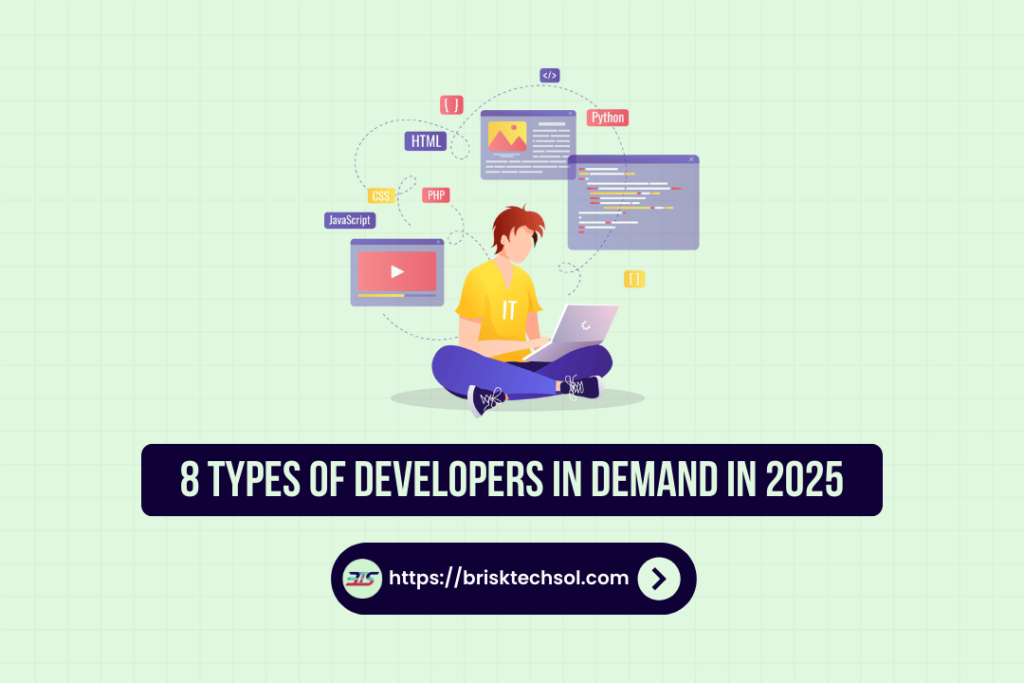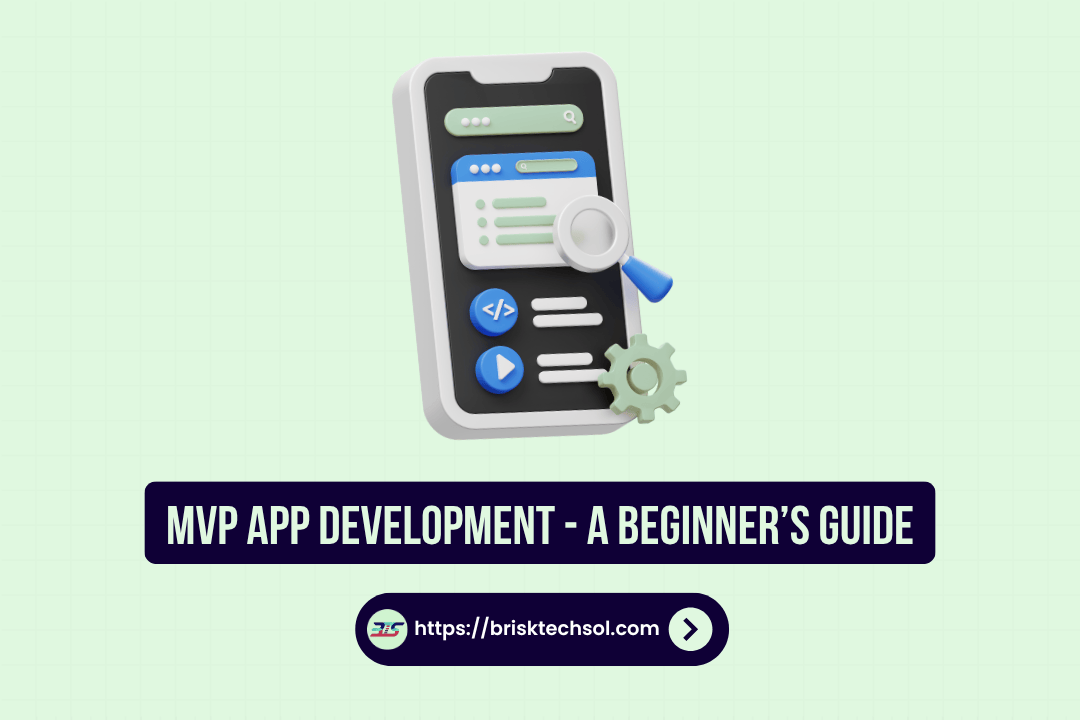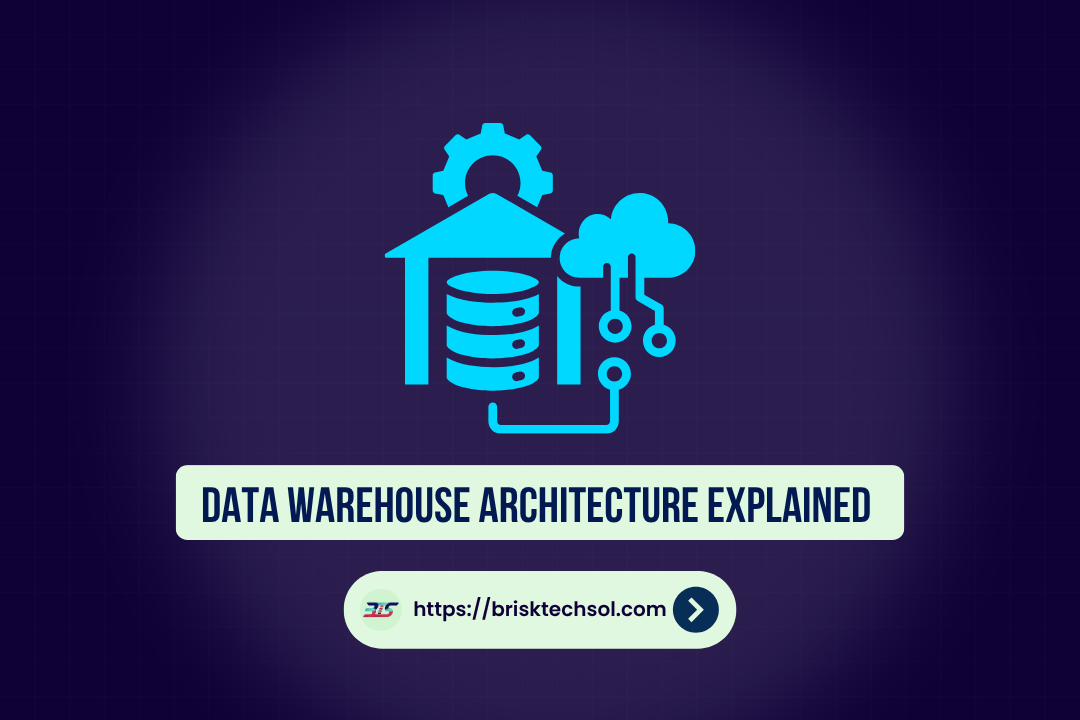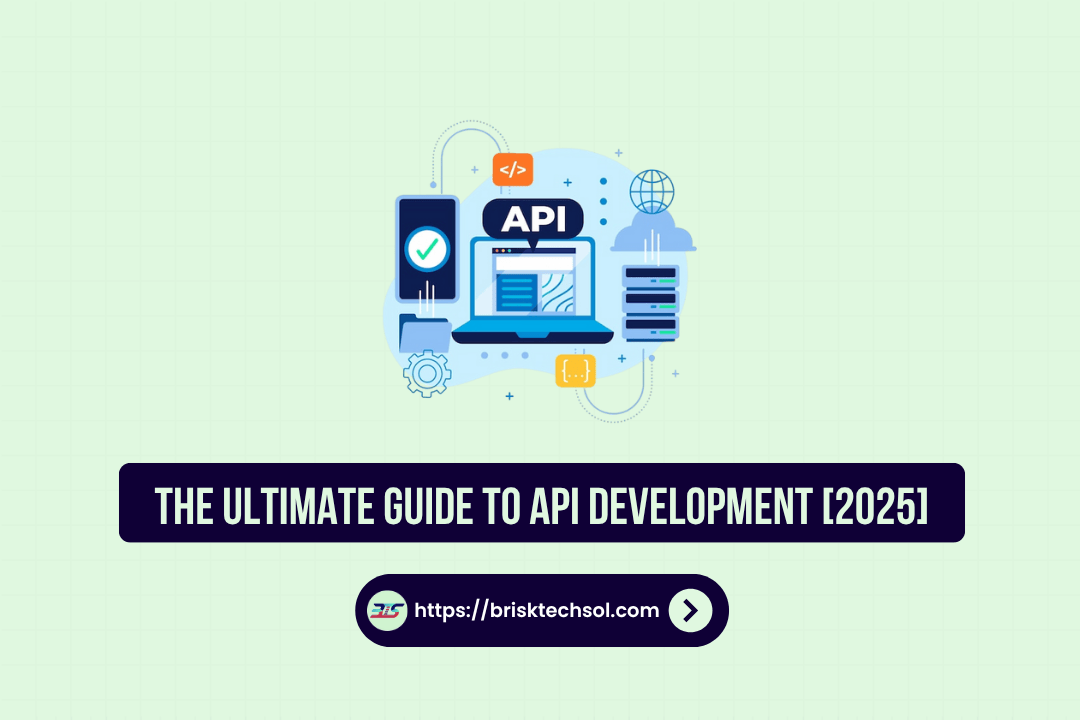Today, the word “developer” means much more than just writing code; it covers a wide range of skills that drive innovation in many industries. With 2025 on the horizon, knowing which developer roles will be most sought after can offer valuable insights for both aspiring professionals and companies. This article explores eight key types of developers, outlining the skills they offer, current trends, and tips for success in these areas. Whether you’re just starting out or already have experience, these insights can help you keep up in the world of software development.
1. Front-End Developers: The Creators of User Experiences
Role Overview
Front-end developers build the parts of websites and apps that users interact with. They work with designers to make sure that digital products are not only attractive but also easy to use on any device.
Key Responsibilities
- Design Integration: Turning design mockups into live web pages.
- Performance Optimization: Making sure pages load quickly and work smoothly.
- Responsive Design: Creating layouts that work well on all types of devices.
- Accessibility: Ensuring that websites and apps are usable by everyone.
Essential Skills and Tools
- Languages: HTML, CSS, and JavaScript.
- Frameworks/Libraries: React, Angular, or Vue.js.
- Design Tools: Figma, Adobe XD, or Sketch.
- SEO Basics: Optimizing pages so search engines can index them well.
Why They’re in Demand
With the growth of online shopping, mobile browsing, and interactive web apps, companies need front-end developers to create smooth and engaging digital experiences. Their work helps businesses stand out in an online market.
2. Back-End Developers: The Power Behind Applications
Role Overview
Back-end developers build and maintain the behind-the-scenes parts of apps. They ensure that data moves smoothly between servers and users, handling tasks like database management and security.
Key Responsibilities
- Server Management: Creating and keeping the core parts of applications running.
- Database Integration: Managing how data is stored and retrieved.
- API Development: Building and maintaining the connections between different parts of an app.
- Security: Adding strong safety measures to protect data.
Essential Skills and Tools
- Languages: Python, Java, Ruby, or PHP.
- Frameworks: Django, Ruby on Rails, or Node.js.
- Databases: SQL, PostgreSQL, or MongoDB.
- Cloud Basics: Understanding services like AWS, Azure, or Google Cloud.
Why They’re in Demand
Modern applications are more complex than ever. As businesses rely more on data and online services, back-end developers play a key role in keeping systems secure and efficient.
3. Full-Stack Developers: The All-Rounders
Role Overview
Full-stack developers work on both the front-end and back-end parts of apps. Their broad skill set allows them to handle entire projects from start to finish, making them very valuable in smaller teams and startups.
Key Responsibilities
- Complete Project Handling: Managing both the user interface and the underlying logic.
- Rapid Prototyping: Quickly building early versions of projects.
- System Integration: Making sure all parts of an app work together seamlessly.
- Problem Solving: Fixing issues across the whole technology setup.
Essential Skills and Tools
- Languages and Frameworks: A mix of front-end (HTML, CSS, JavaScript) and back-end (Python, Java, Node.js) tools.
- Version Control: Using Git to manage code changes.
- Cloud and DevOps: Basic knowledge of container tools like Docker and systems like Kubernetes.
Why They’re in Demand
In today’s fast-changing tech scene, being able to handle all parts of a project is a huge plus. Full-stack developers offer a complete solution for teams that need to build and update apps quickly.
4. Mobile App Developers: Creating On-the-Go Experiences
Role Overview
Mobile app developers build apps for smartphones and tablets. With more people using mobile devices for almost everything, these developers play a key role in helping businesses reach their customers wherever they are.
Key Responsibilities
- Platform-Specific Development: Building apps for iOS and Android.
- User Experience: Making sure mobile apps work well on small screens.
- Integration: Connecting apps with back-end systems and other services.
- Maintenance: Regularly updating apps to work with new operating systems and fix security issues.
Essential Skills and Tools
- Languages: Swift and Objective-C for iOS; Java and Kotlin for Android.
- Frameworks: React Native or Flutter for building apps that work on multiple platforms.
- UI/UX Design: Understanding what makes a good mobile design.
- Performance Tuning: Making sure apps run well on various devices.
Why They’re in Demand
As mobile banking, shopping, and social media continue to grow, businesses need skilled mobile app developers to build user-friendly and reliable apps. The trend toward mobile-first design makes this role very important.
5. AI and Machine Learning Developers: Using Data to Build Smart Apps
Role Overview
AI and machine learning developers use data to create smart apps. Their work includes building algorithms that can predict trends or offer personalized recommendations.
Key Responsibilities
- Algorithm Development: Creating models that can learn from data.
- Data Analysis: Working with large sets of data to find useful patterns.
- Model Training: Using software to train and improve models.
- Integration: Adding AI features to existing apps.
Essential Skills and Tools
- Languages: Python, R, or Java.
- Libraries: TensorFlow, PyTorch, or Scikit-learn.
- Data Tools: Knowledge of big data systems like Hadoop or Spark.
- Math and Stats: A good grasp of statistics and basic math concepts.
Why They’re in Demand
As data becomes more important in business, the need for developers who can build smart, data-driven apps keeps growing. Their work is changing industries like health care, finance, and retail.
6. DevOps Engineers: Connecting Development and Operations
Role Overview
DevOps engineers make the process of building and updating apps smoother. They work to improve teamwork between developers and IT staff, automate tasks, and speed up the release of new features.
Key Responsibilities
- Automation: Setting up tools that automatically test and deploy code.
- Infrastructure Management: Using tools like Docker and Kubernetes to manage online services.
- Monitoring: Keeping an eye on systems to make sure they work well.
- Team Collaboration: Helping different teams work together more efficiently.
Essential Skills and Tools
- Scripting: Knowing languages like Bash, Python, or Perl.
- Automation Tools: Experience with Jenkins, GitLab CI, or Travis CI.
- Container Tools: Skills in Docker and Kubernetes.
- Cloud Basics: Familiarity with services like AWS, Azure, or Google Cloud.
Why They’re in Demand
In a time when fast and reliable app updates are key, DevOps engineers are essential. Their work in automating tasks and reducing downtime helps companies keep up with the demands of modern software.
7. Cybersecurity Developers: Protecting Our Digital World
Role Overview
Cybersecurity developers work to keep apps and data safe from hackers and other threats. They design secure systems and write code that minimizes risks.
Key Responsibilities
- Threat Analysis: Identifying and reducing potential security risks.
- Secure Coding: Writing code that is hard for hackers to exploit.
- Incident Response: Planning how to handle security breaches.
- Compliance: Making sure systems follow industry safety rules.
Essential Skills and Tools
- Security Guidelines: Understanding best practices like OWASP standards.
- Encryption: Knowing how to use methods like SSL and TLS.
- Testing Tools: Experience with software like Metasploit and Wireshark.
- Programming: Writing secure code in languages like Python, Java, or C++.
Why They’re in Demand
As online threats become more common, companies need cybersecurity developers to protect their systems. Their work helps keep personal and business data safe, which is more important than ever.
8. Cloud Developers: Experts in Virtual Computing
Role Overview
Cloud developers build and manage apps that run on cloud platforms. They help companies use virtual resources to run apps more efficiently and save on costs.
Key Responsibilities
- Cloud Design: Creating apps that can run smoothly on cloud services.
- System Integration: Moving older systems to cloud-based ones.
- Automation: Using tools to automatically manage app updates.
- Security: Making sure cloud systems meet safety standards.
Essential Skills and Tools
- Cloud Services: Skills with AWS, Azure, or Google Cloud.
- Infrastructure Tools: Using Terraform or CloudFormation to manage resources.
- Programming: Experience with languages like Python, Java, or Go.
- DevOps: Knowing how to set up automated deployment processes.
Why They’re in Demand
As businesses shift from traditional systems to online services, cloud developers are needed to build and manage these new setups. Their skills help companies run more efficiently and keep costs down.
How to Get Ready for a Career in High-Demand Developer Roles
Learning and Improving Your Skills
- Online Courses and Certifications: Websites like Coursera, Udemy, and edX offer lessons on the latest tech topics.
- Hands-On Experience: Work on open-source projects or create your own apps to practice your skills.
- Networking: Join online tech groups and attend events to learn from others.
- Soft Skills: Good communication, problem-solving, and teamwork are just as important as technical skills.
Staying Up to Date with New Trends
- Tech Blogs and Forums: Follow experts on sites like Medium and Reddit.
- Tech News: Keep up with the latest news from trusted sources.
Practical Projects: Experiment with new tools and techniques to gain real-world experience.
TL;DR: Developer Roles in Demand
- Front-End: Build user interfaces with HTML, CSS, JS. Focus on design, speed, and accessibility.
- Back-End: Manage servers, databases, APIs. Use Python, Java, PHP for secure, efficient systems.
- Full-Stack: Do both front and back-end. Ideal for small teams. Versatile and efficient.
- Mobile: Create apps for iOS/Android using Swift, Kotlin, or Flutter. Key for mobile-first needs.
- AI/ML: Build smart apps with Python, TensorFlow. High demand in data-driven industries.
- DevOps: Automate deployment, manage infrastructure. Essential for fast, stable updates.
- Cybersecurity: Secure apps from threats using safe coding and encryption.
- Cloud: Build and manage apps on AWS, Azure. Crucial for scalable, cost-effective solutions.
FAQs
Q1: What skills are most important for a front-end developer in 2025?
A front-end developer should know HTML, CSS, and JavaScript well. They should also understand how to make designs work well on different devices and have a good grasp of basic SEO techniques. Learning frameworks like React, Angular, or Vue.js is also important.
Q2: Why are full-stack developers so valuable today?
Full-stack developers have a wide range of skills that let them work on both the user side and the back-end of apps. This flexibility is very useful for small teams and startups that need to build and update projects quickly.
Q3: How can I start a career in AI and machine learning?
Begin by learning Python and basic statistics. Take online courses and work on small projects that involve data analysis. Get familiar with tools like TensorFlow or PyTorch to build and train models.
Q4: What do DevOps engineers do in software development?
DevOps engineers help make the process of building and updating apps smoother by setting up automated testing and deployment. Their work is key to keeping apps running well and reducing downtime.
Q5: Are there any certifications that can boost my career as a developer?
Yes, certifications like AWS Certified Developer, Google Cloud Professional Developer, Certified Kubernetes Administrator, and various cybersecurity certificates can help prove your skills and make your resume stand out.
Q6: Which developer role is best for someone who likes both coding and solving problems?
Full-stack development is a great choice if you enjoy working on both the user interface and the back-end of apps. This role requires both technical skills and the ability to solve a variety of problems.









